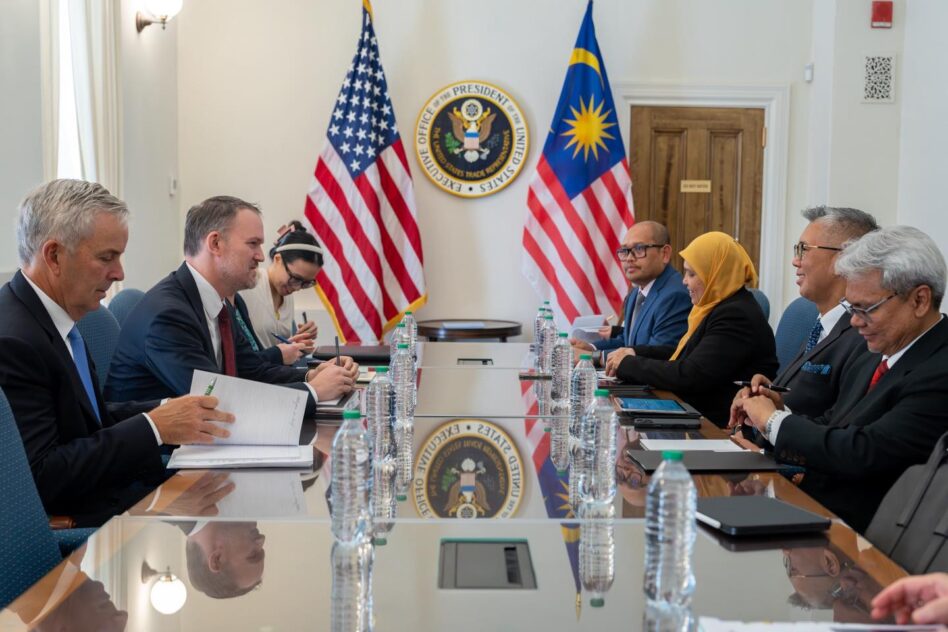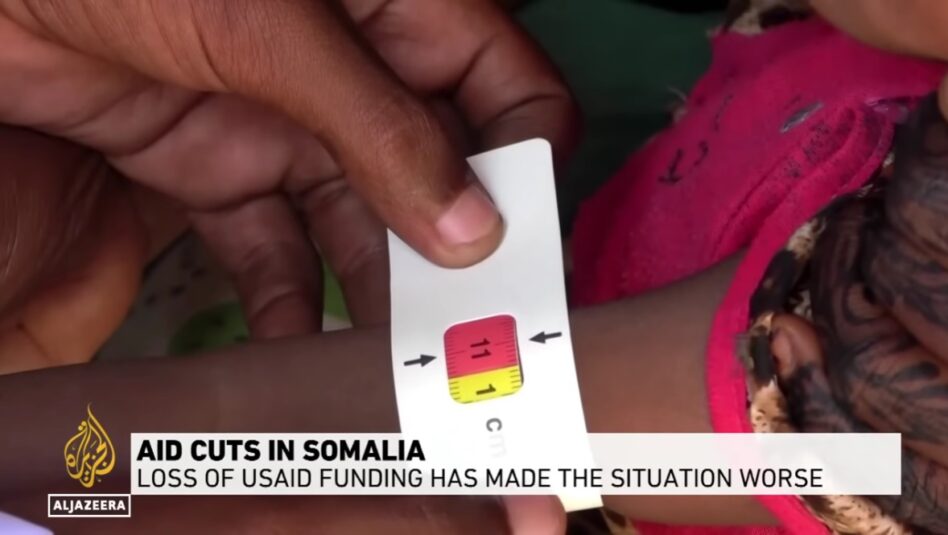By Doreenn Leong & Emmanuel Samarathisa
REELING from the coronavirus crisis, Malaysia-based airlines are seeking financial assistance from the government, industry sources tell FocusM on condition of anonymity.
It is understood that industry captains met with Finance Minister Tengku Datuk Seri Zafrul Tengku Aziz to discuss aid and other reliefs after being badly hit by the Covid-19 outbreak.
The chief executive officers who had a sit-down with Tengku Zafrul were AirAsia Group Bhd founder Tan Sri Tony Fernandes, Malindo Airways Sdn Bhd CEO Captain Mushafiz Mustafa Bakri, Malaysia Airlines Bhd (MAB) group CEO Captain Izham Ismail and MAB subsidiary Firefly CEO Philip See.
The meeting took place on Sunday (March 15), from 3pm, with each airline chief given half an hour to discuss ways on how to, among others, stay afloat.
Some of the measures proposed include financial aid for retrenched staff and tax reliefs.
It is also understood that Tengku Zafrul briefed Prime Minister Tan Sri Muhyiddin Yassin the following Monday (March 16) on the details.
It doesn’t come as a surprise for the local airlines to approach the government for help. As it is, most of the world’s airlines could go under due to the pandemic. According to Sydney-based consulting firm CAPA – Centre for Aviation, some of these airlines could be bankrupt by the end of May unless the government and the industry step in to help them.
“Coordinated government and industry action is needed now if catastrophe is to be avoided. Otherwise, emerging from the crisis will be like entering a brutal battlefield, littered with casualties,” CAPA said.
Local airlines are fast running out of cash and drastic cost-cutting measures have already been undertaken by most of the airlines, but it may not be sufficient to pull them through.
Malindo has temporarily suspended all its international operations until March 31, 2020. The airline recently revealed cost-cutting measures including slashing 50% of staff’s basic pay.
AirAsia has embarked on a number of cost-cutting measures as well, including receiving a lower salary while MAB implemented a 10% reduction in salaries for its senior management.
Globally, Qantas Airways Ltd became the latest major airline to cancel its international flights. Lufthansa has already held talks with the German government about providing special loans.
But should the government bail out AirAsia or any of the privately-run airlines, it would receive flak from the public as this involves taxpayers funds.
“The government, via Khazanah Nasional Bhd, is already spending billions to keep national carrier MAB afloat. Why should the government put in money to rescue the airlines? What about other industries which are also crying for help? At the end of the day, let the fittest survive,” said an industry player.
Some RM23.6 bil has reportedly been injected into MAB since 2001 in various attempts to turn around the national carrier. Its owner Khazanah paid RM1.4 bil to take MAB private in 2014 and laid out a five-year turnaround plan.
Last year, Khazanah suffered a pre-tax loss of RM6.3 bil, mainly due to RM7.3 bil in impairments, half of which were attributable to MAB.
MAB narrowed its net loss by a marginal 2.5% to RM791.71 mil in the financial year ended Dec 31, 2018 (FY18) from RM812.11 mil in the previous year on the back of improved revenue of RM8.74 bil versus RM8.67 bil.
The government had announced an economic stimulus package on Feb 27 to ensure economic risks associated with the outbreak are effectively addressed. To help ease the cash flow of businesses affected by the pandemic, the government allowed for six months from April 1 the deferment of monthly income tax instalment payments for businesses in the tourism sector.
In addition, companies affected by Covid-19 will be allowed to revise their profit estimates for 2020 with respect to monthly income tax instalment payments without penalty.
There is also a 15% discount in monthly electricity bills to hotels, travel agencies, airlines, shopping malls, conventions and exhibitions centres.
Malaysia Airports Holdings Bhd will also provide rebates on rental for premises at the airport as well as landing and parking charges.
But such measures may not be enough for most businesses as the outbreak took a turn for the worse. The government on March 16 imposed a Movement Control Order limiting movement for 14 days starting from March 18. This is a major blow for airlines which saw a halt in air travel, not just in Malaysia but in many countries affected by the virus as well.
To compound matters further, the government on March 19 said it cancelled the ongoing Visit Malaysia 2020 (VMY2020) in light of the Covid-19 outbreak.
There were already concerns over AAX’s cash balance of only RM358 mil as at Dec 31, 2019 versus total borrowings of a massive RM6.32 bil. AAX’s net loss increased 62% yoy to RM489.48 mil in FY19 while revenue declined 4% yoy to RM4.39 bil.
Analysts also believed the airline would need to urgently raise fresh funds to keep it from declining further.
The airline said its turnaround plan involves taking an aggressive approach to reduce costs and stimulate demand, including suspending non-profitable routes, ongoing capacity management to match flights with demand, deferring future deliveries of the Airbus A330 neo aircraft and engaging in short-term wet-lease arrangements.
Meanwhile, AirAsia plunged into the red with a net loss of RM303.72 mil in FY19 from a net profit of RM1.98 mil in the previous year on the back of higher revenue of RM12.44 bil versus RM10.64 bil. Its cash balance stood at RM2.59 bil as at Dec 31, 2019 versus total borrowings of RM428.8 mil.
The grim situation had prompted AmInvestment Bank Research to project a bigger net loss of RM985.4 mil in FY20 (versus a net loss of RM784.2 mil previously) for AirAsia and a smaller net profit of RM258.9 mil in FY21 (from RM482.3 mil previously).
“We cut our fair value by 47% to 50 sen (versus 94 sen previously) based on 6.5x revised FY21 EPS, at a 50% discount to its global peers (Ryanair and Southwest Airlines) to reflect AirAsia’s relatively smaller size.”
The research house said the earnings downgrade was mainly to reflect a 10% contraction in passengers carried in FY20 (versus a 5% contraction assumption previously) against a backdrop of weak demand for air travel amid the Covid-19 outbreak followed by the cancellation of VMY2020.
AmInvest said the campaign was supposed to bring in 30 million tourists in 2020 (+12% yoy versus annualised 9MFY19 of 26.8 million).
“We are now projecting a 5% contraction in tourist arrivals (versus our flattish assumption previously). AirAsia has already seen a double-digit yoy decline in its passengers since February 2020. It is trying to mitigate the situation by not extending expired aircraft leases as well as negotiating for lower lease charges and maintenance fees,” it added.
The research house said AirAsia is also weighed down by the higher cost structure as a result of sales and leaseback, and higher depreciation and finance costs under the new MFRS 16 accounting standard.
“We maintain our sell recommendation on AirAsia. AirAsia’s key strategy to aggressively grow its top line has been thwarted by the Covid-19 outbreak.
“Not helping either is the cancellation of VMY2020. This makes it difficult for the group to offset the impact of the higher cost structure following the sale and leaseback of its fleet.
“However, we believe part of the budget previously allocated for VMY2020 could now potentially be relocated as airline aid to help the airline to get through the crisis from the Covid-19 pandemic,” it added. – March 19, 2020









